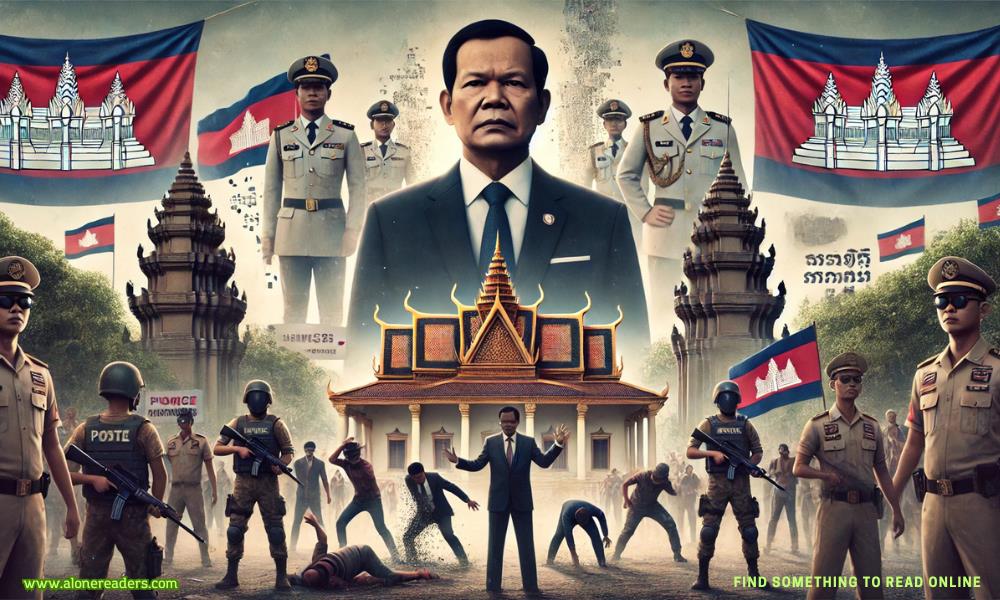Page 4 of Rescue
“Shit,” I mutter, adrenaline surging through me.
I start compressions, pressing into his chest in a steady rhythm. “One, two, three,” I count under my breath, my voice drowned out by the storm.
“Come on, Arif,” I mutter, my voice raw. “Don’t you dare give up on me.”
But his chest doesn’t rise. His pulse doesn’t return.
“Breathe for him,” I bark, and Mel follows my orders. I keep pounding his chest and checking his pulse. But there is nothing.
My stomach sinks, the weight of failure pressing down on me. I glance at Mel; her eyes are wide with desperation, her hands moving frantically against Arif’s sternum.
“It’s no use,” I whisper, my voice cracking.
Mel freezes, hovering her hands over his chest. Her breath catches, and she sinks back onto her heels, as tears stream down her face.
She cradles Arif’s head in her lap. Her sobs are barely audible over the storm.
I sit back; my hands tremble as the rain mixes with the mud and sweat on my skin. The world blurs around me, but I force myself to focus.
Will.
I crawl to his side, my heart pounding as I check his pulse again. Still faint, still steady.
“Hang on, Will,” I murmur, brushing the mud from his face.
I press my hands to his abdomen, feeling for rigidity. It’s taut—a clear sign of internal bleeding. His legs are twisted, likely indicating a fracture. He’s pale and clammy, classic signs of hypovolemic shock.
My mind races through the possibilities, cataloguing what needs to be done: stabilise, prevent further injury, and prepare for transport. But out here, with nothing but a medical bag and the storm raging around us, the options feel crushingly limited.
The people who scrambled down from the road above are gathering now, their voices muffled by the rain. Someone brings a tarp, holding it over us to shield Will from the worst of the downpour.
I glance at Mel. She’s still cradling Arif, her face pale and streaked with mud.
“Mel,” I say firmly. “I need you.”
She looks up, her eyes red and swollen. She nods, setting Arif down gently before crawling to Will’s side.
Together, we work to stabilise him, every movement a fight against the elements and our own exhaustion.
The rain doesn’t let up. It pounds against the ground, the wreckage, and us, as if the storm itself is mourning. And as I work, the weight of Arif’s death presses down on me, a cruel reminder of the limits of what I can do.
The rain continues its merciless assault, turning everything into a swamp of mud and misery. My hands work on autopilot, checking Will’s vitals, adjusting his position, and stabilising him as best as I can. The faint, erratic pulse under my fingers is the only thing anchoring me. Every moment feels like a lifetime.
Mel hovers nearby, her eyes darting between Will and Arif’s lifeless body. She looks like she is still in shock, herhands tremble when they’re not busy helping me. Neither of us says much.
I glance at the broken HF radio still strapped inside the truck’s shattered cabin. It’s useless. My phone is equally hopeless, a black mirror mocking me with its lack of signal. We’re on our own, cut off from the outside world, and the storm shows no sign of relenting.
Will groans softly, his head lolling to the side.
“Will,” I murmur, leaning closer. “Stay with me, mate. Just hang on a little longer.”
His eyes flutter open briefly, glazed and unfocused, before shutting again.
“Jon,” Mel calls, her voice sharp but low.
I look up to see a figure approaching through the rain—a man, waving his arms as he navigates the treacherous slope. My body tenses, unsure if this is friend or foe, but when he gets closer, I spot the logo of another NGO on his jacket.
He shouts something in Tajik, his voice barely carrying over the storm. When he reaches us, his face is etched with concern as he takes in the wreckage and the bodies on the ground.
- Beneath the Burn by Pam Godwin
- Unhinged by Jane Henry
- Praise Me: Soldier by Jessa Kane
- Irresistible Temptation by Tory Baker
- The Brat and the Bodyguard by S.E. Law
- Seduced By the Mafia Don by Flora Ferrari
- However You Want Me by W. Winters
- Mountain Protector by Stella Banks
- Kissing My Brother's Best Friend by Lena Little
- Tempted By the Devil by Sienne Vega
- Husband for the Holidays by Dani Collins
- Arranged by Piper Stone
- Redemption by Tori Fox
- Inked Soul by Jade Marshall
- Speed by R.J. Scott
- Always You by R.J. Scott







